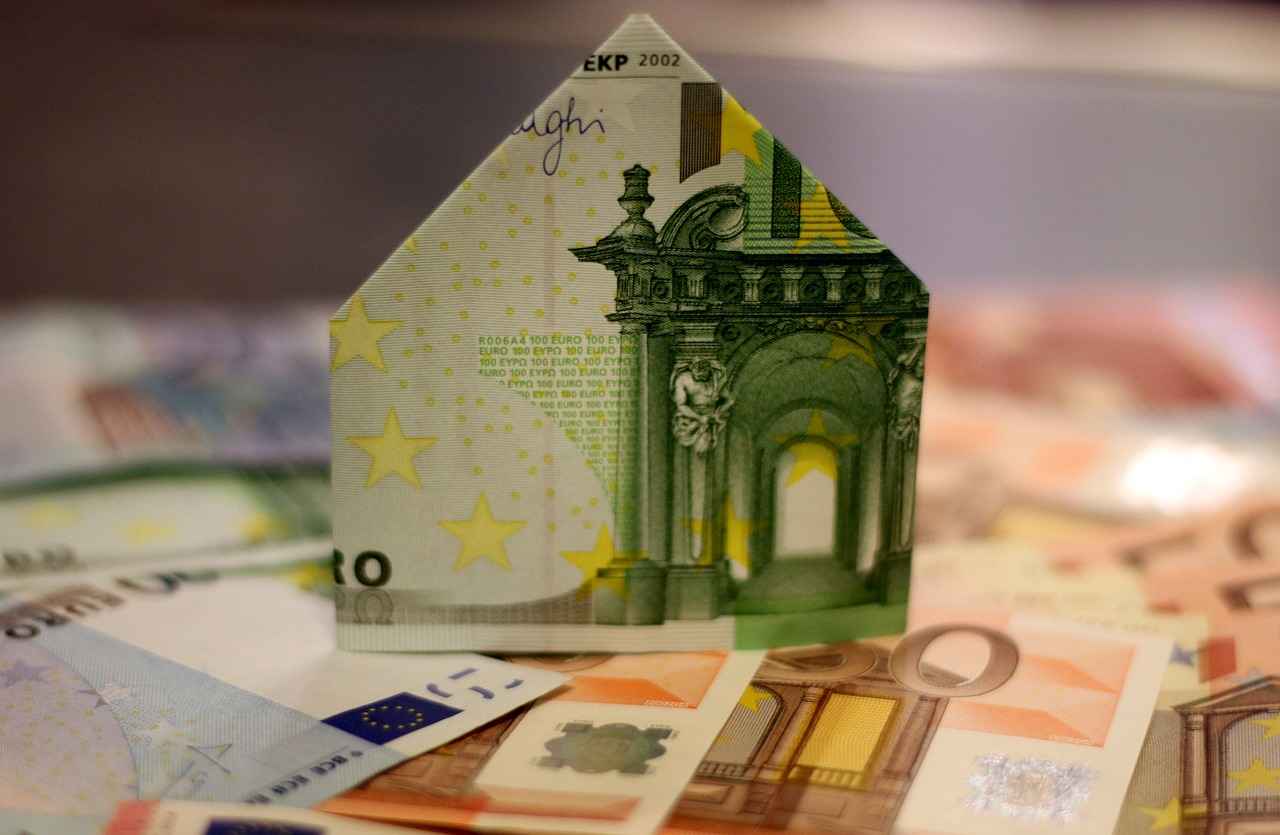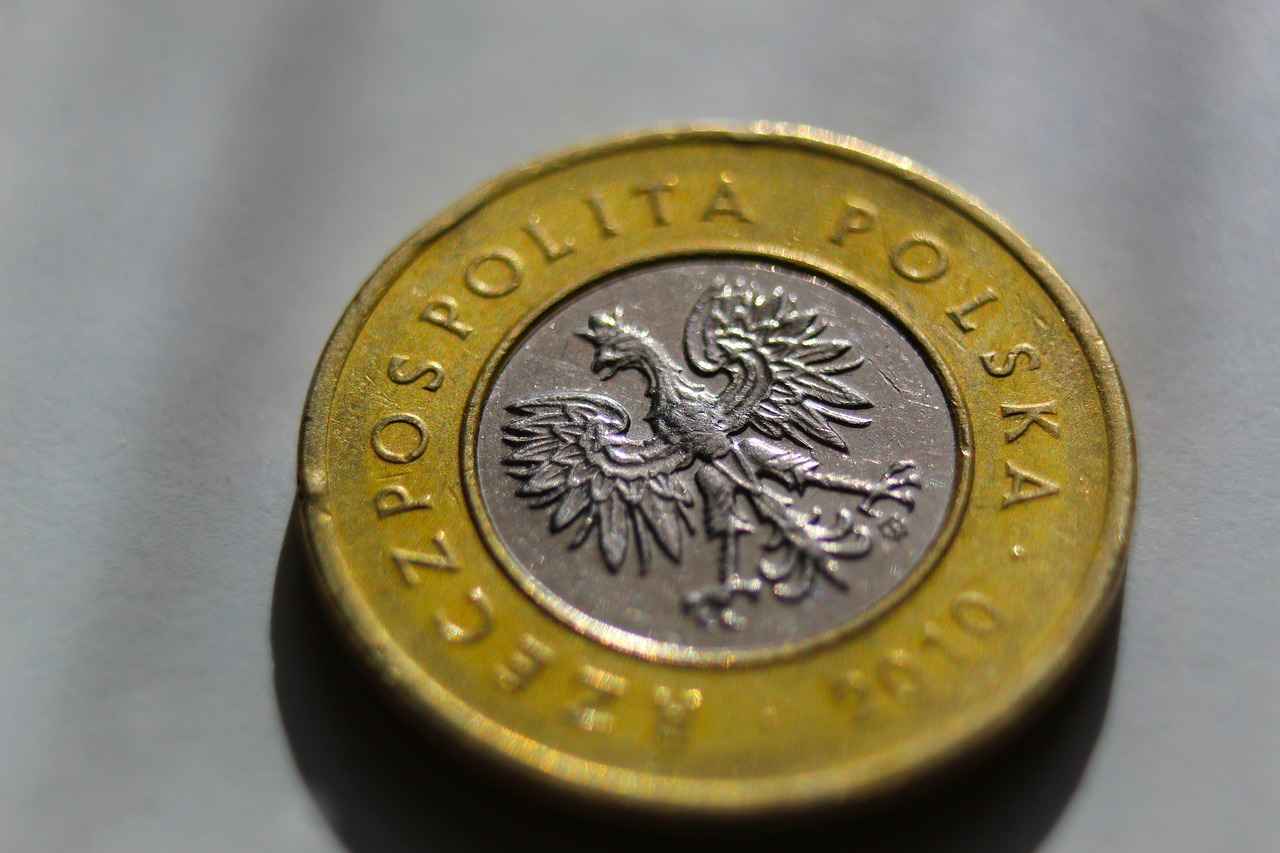This article delves into the benefits of personal loans that do not require a credit check, focusing on their accessibility, flexibility, and appropriateness for various financial needs.
Understanding Personal Loans with No Credit Check
Personal loans without credit checks are specifically designed for individuals who may have poor credit or no credit history. These loans provide access to funds without the typical barriers encountered with traditional lenders.
Accessibility for All Borrowers
These loans open up opportunities for a wider range of individuals, including those facing financial challenges or with limited credit histories. This inclusivity is crucial for fostering financial independence.
- Quick Approval Process: The approval process for no credit check loans is generally much faster than traditional options, allowing borrowers to access funds quickly during emergencies.
- Online Application Convenience: Many lenders offer online applications, making it easier for applicants to submit their requests from home.
- Minimal Documentation Required: Borrowers often face fewer documentation requirements, simplifying the qualification process.
Flexible Loan Amounts and Terms
Lenders of no credit check personal loans frequently provide flexible amounts and repayment terms, enabling borrowers to choose options that best align with their financial situations.
Building or Rebuilding Credit
Even though these loans do not require credit checks initially, making timely repayments can help improve a borrower’s credit score over time, paving the way for better financial opportunities.
- Establishing a Positive Payment History: Consistent, on-time payments contribute to a positive credit history, essential for securing larger loans or better interest rates in the future.
- Access to Financial Education Resources: Many lenders offer resources to help borrowers manage their finances effectively, enhancing their financial literacy.
Potential Risks and Considerations
While personal loans with no credit checks present numerous benefits, they can also come with higher interest rates and fees. Understanding the terms is vital before committing.
- High-Interest Rates Explained: To offset the risk of lending to individuals with poor credit, lenders may charge higher interest rates, leading to increased overall repayment amounts.
- Loan Scams and Predatory Lending: Borrowers must be cautious of potential scams targeting those seeking no credit check loans, emphasizing the importance of thorough research.
Alternatives to No Credit Check Personal Loans
For individuals who prefer not to pursue no credit check loans, various alternatives exist, such as secured loans, credit unions, and peer-to-peer lending platforms, each with unique benefits and requirements.

Understanding Personal Loans with No Credit Check
Personal loans without credit checks are designed specifically for individuals facing challenges due to poor or nonexistent credit histories. These financial products allow borrowers to access funds without the stringent requirements typically imposed by traditional lenders. This makes them an appealing option for those in urgent need of financial assistance.
Accessibility for Diverse Borrowers
One of the most significant advantages of these loans is their accessibility. They cater to a wide range of individuals, including those who may have been denied credit in the past. This includes students, recent immigrants, or anyone who has struggled with financial issues. By minimizing barriers, these loans provide essential support to those who might otherwise find themselves without options.
Fast Approval and Funding
The approval process for personal loans without credit checks is often streamlined and quicker compared to traditional loans. Borrowers can expect to receive funds in a matter of days, or even hours, which is crucial in times of financial emergencies. This speed can alleviate stress and help individuals manage their expenses promptly.
Minimal Documentation
Another appealing feature is the reduced documentation requirement. Many lenders do not require extensive paperwork, making it easier for borrowers to qualify. This simplicity is particularly beneficial for those who may not have a comprehensive financial history available.
Flexible Loan Options
Lenders typically offer flexible loan amounts and repayment terms, allowing borrowers to choose options that align with their financial situations. This flexibility is vital for individuals who may need smaller amounts or longer repayment periods to manage their budgets effectively.
Opportunity for Credit Improvement
While these loans may not require a credit check upfront, they can serve as a stepping stone toward rebuilding credit. Timely repayments can positively impact a borrower’s credit score, opening doors to better financial opportunities in the future. Establishing a positive payment history is critical for anyone looking to improve their creditworthiness.
Access to Financial Education
Many lenders also provide financial education resources to help borrowers manage their finances effectively. This support can empower individuals to make informed decisions and improve their financial literacy, which is essential for long-term financial health.

Accessibility for All Borrowers
In today’s financial landscape, personal loans with no credit check have emerged as a vital resource for many individuals facing financial challenges. These loans are particularly beneficial for those who have struggled with credit in the past, as they offer an opportunity to secure funds without the typical barriers associated with traditional lending practices.
By eliminating the credit check requirement, these loans open the door for a broad audience to access necessary funds. This includes individuals with limited credit histories, recent graduates, or those who have faced unforeseen financial hardships. The accessibility of these loans is crucial in providing support to those who might otherwise be denied credit due to their financial circumstances.
Furthermore, personal loans with no credit check can serve as a stepping stone for borrowers to improve their financial standing. By responsibly managing these loans and making timely payments, individuals can begin to establish or rebuild their credit history. This is an essential aspect for anyone looking to enhance their financial future.
- Opportunity for All: These loans are designed to cater to a diverse range of borrowers, ensuring that more individuals can access financial support when needed.
- Encouragement for Financial Responsibility: By making timely repayments, borrowers can positively impact their credit scores, paving the way for better lending opportunities in the future.
- Support for Financial Growth: Many lenders provide resources and tools to help borrowers manage their finances effectively, further promoting financial literacy.
In summary, the accessibility of personal loans without credit checks is a significant advantage for many borrowers. These loans not only provide immediate financial relief but also offer a pathway for long-term financial improvement and stability.
Quick Approval Process
The for no credit check loans is one of the most significant advantages that borrowers can enjoy. Unlike traditional loans, which often involve lengthy evaluations of credit history and financial background, these loans are designed to facilitate rapid access to funds, making them ideal for individuals facing urgent financial situations.
Typically, the approval time for no credit check loans can be completed within minutes to a few hours. This swift process is largely due to the simplified criteria that lenders use to assess eligibility. Instead of delving into credit scores, lenders focus on other factors such as income, employment status, and existing financial obligations. This approach allows for a more streamlined evaluation, reducing the waiting period significantly.
Moreover, many lenders in this space leverage online platforms to expedite applications further. Borrowers can fill out forms and submit necessary information from the comfort of their homes, eliminating the need for in-person visits and long queues. This convenience not only saves time but also enhances the overall borrowing experience.
In addition to speed, the minimal documentation required for these loans contributes to their efficiency. Borrowers are often asked to provide only basic information, which can include proof of income and identification, rather than extensive financial records. This lack of rigorous documentation can be particularly beneficial for those who may not have all their financial paperwork readily available.
Ultimately, the quick approval process for no credit check loans serves as a vital lifeline for individuals in financial distress, allowing them to access the funds they need without the burdensome delays associated with traditional lending practices. By understanding this aspect, borrowers can make informed decisions that align with their immediate financial needs.
Online Application Convenience
In today’s fast-paced world, the for personal loans has transformed the borrowing landscape. Many lenders now provide a seamless online application process, which not only simplifies the borrowing journey but also enhances accessibility for a wide range of applicants. This innovative approach allows individuals to complete their loan applications from the comfort of their homes, eliminating the need for in-person visits to banks or financial institutions.
One of the primary advantages of online applications is the time efficiency they offer. Traditional loan applications often involve lengthy paperwork and multiple visits to the lender’s office. In contrast, online applications typically require minimal documentation, allowing borrowers to submit their information quickly and efficiently. As a result, many lenders can process applications in a matter of minutes, providing applicants with swift feedback on their loan status.
Additionally, the online platform often includes user-friendly interfaces that guide borrowers through each step of the application process. This accessibility is particularly beneficial for individuals who may feel overwhelmed by traditional loan procedures. With clear instructions and prompts, applicants can easily input their financial information, ensuring that they provide all necessary details without confusion.
Moreover, the ability to apply online means that borrowers can access a wider range of lenders and loan products. They can compare interest rates, terms, and fees from the comfort of their homes, empowering them to make informed decisions that best suit their financial needs. This level of transparency is crucial in helping borrowers find the most favorable loan options available.
In summary, the provided by many lenders has revolutionized the personal loan process. By simplifying applications, reducing paperwork, and enhancing accessibility, online platforms empower borrowers to take control of their financial futures.
Minimal Documentation Required
One of the most appealing aspects of personal loans with no credit check is the significantly reduced documentation that borrowers are required to provide. This streamlined process is particularly beneficial for individuals who may struggle to gather the extensive paperwork demanded by traditional lenders. Instead of lengthy financial disclosures, borrowers can often qualify with just a few basic documents, making access to funds much more straightforward.
For many, the burden of extensive paperwork can be a significant barrier when seeking financial assistance. With no credit check loans, the requirements are often limited to:
- Proof of identity (such as a government-issued ID)
- Proof of income (like pay stubs or bank statements)
- Basic personal information (including contact details and social security number)
This reduced requirement not only speeds up the application process but also minimizes the stress associated with loan applications. Borrowers can often complete their applications online, allowing them to submit their documents from the comfort of their homes without the need for in-person visits.
Furthermore, this simplified documentation process opens the door for a wider range of applicants. Individuals who may have previously been turned away due to lack of paperwork or complicated financial histories find that they can qualify for loans more easily. This accessibility is crucial for those facing urgent financial situations, as it allows them to obtain funds quickly without the hassle of gathering extensive documentation.
Overall, the minimal documentation required for personal loans with no credit check not only enhances the borrowing experience but also serves as a vital tool for individuals seeking financial relief without the complications of traditional lending practices.
Flexible Loan Amounts and Terms
When considering personal loans with no credit check, one of the most significant advantages is the flexibility they offer in terms of loan amounts and repayment plans. Lenders in this market understand that borrowers come from diverse financial backgrounds and may have varying needs. As a result, they often provide a range of loan amounts, allowing individuals to select an amount that aligns with their specific circumstances.
- Customizable Loan Amounts: Borrowers can typically choose from a variety of loan amounts, which can range from a few hundred dollars to several thousand. This customization ensures that individuals can secure the exact amount they need without borrowing excessively.
- Tailored Repayment Terms: In addition to flexible loan amounts, lenders often offer adjustable repayment terms. This means borrowers can select a repayment period that best fits their financial situation, whether they prefer a shorter term with higher payments or a longer term with lower monthly installments.
- Affordability Considerations: By allowing borrowers to choose both the loan amount and the repayment term, lenders aim to make the loans more affordable. This flexibility can help borrowers manage their finances more effectively, reducing the risk of default.
Moreover, this adaptability not only empowers borrowers to take control of their financial situations but also encourages responsible borrowing practices. When individuals can select terms that suit their income and expenses, they are more likely to make timely payments, which can ultimately contribute to improving their credit scores over time.
In summary, the ability to choose flexible loan amounts and repayment terms makes no credit check personal loans an attractive option for many individuals. This feature not only enhances accessibility but also supports borrowers in achieving their financial goals without the stress of overwhelming debt obligations. Whether facing unexpected expenses or planning for a significant purchase, these loans can provide the necessary support while accommodating the unique needs of each borrower.

Building or Rebuilding Credit
When it comes to personal loans with no credit check, one of the most significant benefits is the opportunity they provide for . While these loans may not require a credit check initially, they can serve as a stepping stone for borrowers aiming to improve their financial standing over time.
Timely repayments are crucial in this process. By consistently making payments on time, borrowers can gradually enhance their credit scores. This improvement can open doors to better financial opportunities in the future, such as lower interest rates on future loans or credit cards. A solid payment history can be a vital component in establishing a positive credit profile.
Moreover, these loans often come with flexible repayment terms, allowing borrowers to choose a plan that aligns with their financial capabilities. This flexibility can make it easier to manage payments, thereby increasing the likelihood of on-time repayments.
- Establishing a Positive Payment History: Each on-time payment contributes to a more favorable credit report, which is essential for securing larger loans in the future.
- Access to Financial Education Resources: Many lenders offer educational resources that help borrowers understand credit management and personal finance, further supporting their journey towards improved credit.
- Potential for Future Credit Opportunities: As borrowers demonstrate their ability to manage debt responsibly, they may qualify for better loan products, including those with lower interest rates and more advantageous terms.
In summary, while the initial appeal of personal loans without credit checks lies in their accessibility, their long-term benefits, particularly in , should not be overlooked. By making timely repayments and taking advantage of educational resources, borrowers can set themselves on a path toward financial stability and improved creditworthiness.
Establishing a Positive Payment History
Establishing a positive payment history is crucial for individuals aiming to enhance their financial standing. By making consistent and on-time payments, borrowers can significantly improve their credit scores, which plays a vital role in their financial future.
When individuals adhere to their repayment schedules, they not only demonstrate their reliability to lenders but also contribute to a robust credit profile. This positive credit history is essential for securing larger loans in the future, such as mortgages or auto loans, where lenders typically scrutinize creditworthiness more closely.
Moreover, a strong credit history can lead to better interest rates. Lenders often reward borrowers with lower rates for demonstrating responsible borrowing behavior. This can result in substantial savings over the life of a loan, making it financially advantageous to prioritize timely payments.
Additionally, establishing a positive payment history can open doors to more financial opportunities. Individuals with good credit are often eligible for premium financial products, including credit cards with rewards and lower fees. This flexibility allows borrowers to manage their finances more effectively and take advantage of various benefits.
It’s worth noting that the impact of timely payments extends beyond just credit scores. Many lenders provide educational resources to help borrowers understand the importance of maintaining a positive payment history. This guidance can empower individuals to make informed decisions, ultimately leading to better financial health.
In summary, the act of making consistent, on-time payments is more than just fulfilling a loan obligation; it is a critical step towards building a favorable credit history. By understanding the long-term benefits of this practice, individuals can position themselves for future financial success.
Access to Financial Education Resources
is a crucial aspect of the borrowing experience, especially for individuals seeking personal loans with no credit check. Many lenders recognize the importance of empowering borrowers through financial literacy, providing a variety of resources and support to help them navigate their financial journeys.
These resources often include:
- Online Educational Materials: Lenders typically offer a wealth of information in the form of articles, videos, and webinars that cover essential topics such as budgeting, saving, and debt management.
- Personal Finance Tools: Many platforms provide interactive tools such as loan calculators, budget planners, and financial assessment quizzes that help borrowers understand their financial situations better.
- Access to Financial Advisors: Some lenders offer one-on-one consultations with financial advisors who can provide personalized guidance and answer specific questions about managing finances and loans.
- Workshops and Seminars: In-person or virtual workshops can be a great way for borrowers to learn about various financial topics, including credit building and smart borrowing practices.
By utilizing these resources, borrowers can make informed decisions regarding their finances, leading to improved financial health over time. Understanding the implications of taking on debt, the importance of timely repayments, and strategies for building credit can significantly enhance a borrower’s financial literacy.
Moreover, as borrowers engage with these educational tools, they are more likely to develop a positive financial mindset. This proactive approach not only aids in managing current loans but also prepares individuals for future financial opportunities, such as securing larger loans or obtaining better interest rates.
In conclusion, the integration of financial education resources into the borrowing process is a valuable benefit for individuals seeking personal loans without credit checks. By prioritizing financial literacy, lenders are not only facilitating access to funds but also fostering a generation of informed borrowers who can navigate their financial futures with confidence.

Potential Risks and Considerations
When considering personal loans with no credit checks, it is essential to weigh the potential risks and considerations involved. While these loans offer significant advantages, such as accessibility and quick approval, they also come with certain drawbacks that borrowers should be aware of before making a commitment.
One of the main concerns with personal loans that do not require a credit check is the likelihood of higher interest rates. Lenders often charge elevated rates to compensate for the increased risk associated with lending to individuals who may have poor credit histories. This can result in a substantial financial burden over time, as borrowers may end up paying much more than they initially anticipated.
In addition to higher interest rates, borrowers should be wary of hidden fees that may accompany these loans. Some lenders impose origination fees, late payment fees, or prepayment penalties that can further inflate the total cost of borrowing. It is vital for borrowers to read the fine print and fully understand all associated costs before agreeing to the loan terms.
The ease of obtaining a personal loan without a credit check can sometimes lead to over-borrowing. Borrowers may be tempted to take out larger amounts than necessary, which can lead to financial strain if they are unable to meet repayment obligations. Establishing a clear budget and assessing true financial needs is crucial.
Another significant risk is the prevalence of loan scams and predatory lending practices. Unscrupulous lenders often target individuals seeking no credit check loans, offering terms that are unfavorable and difficult to manage. It is essential for borrowers to conduct thorough research on lenders, check for reviews, and ensure they are dealing with reputable institutions.
To mitigate these risks, potential borrowers should consider shopping around for the best loan terms and comparing offers from multiple lenders. Additionally, understanding one’s own financial situation and being realistic about repayment capabilities can help in making informed borrowing decisions.
High-Interest Rates Explained
When considering personal loans without credit checks, one of the most significant factors to understand is the potential for high-interest rates. Lenders often impose elevated rates to mitigate the risks associated with lending to borrowers who have poor credit histories. This practice is primarily due to the lack of a comprehensive credit evaluation, which traditionally helps lenders assess the likelihood of timely repayments.
The rationale behind these higher rates is straightforward: individuals with poor credit are statistically more likely to default on their loans. As a result, lenders may increase interest rates to compensate for this risk, ultimately leading to a higher overall repayment amount for the borrower. For example, if a borrower takes out a loan of $5,000 at an interest rate of 25%, they could end up repaying significantly more than the initial amount borrowed, depending on the loan term.
Moreover, the absence of a credit check means that lenders may not have a complete picture of a borrower’s financial behavior. This uncertainty can lead to additional fees and costs, further inflating the total repayment amount. Borrowers should be aware that while these loans can provide immediate financial relief, the long-term implications of high-interest rates can be substantial.
It is crucial for potential borrowers to conduct thorough research before committing to a no credit check loan. Understanding the terms, including the interest rates and any associated fees, can help individuals make informed decisions that align with their financial capabilities. By comparing different lenders and their offerings, borrowers can find more favorable terms that may mitigate some of the financial burdens imposed by high-interest rates.
Ultimately, while personal loans without credit checks can serve as a valuable financial tool for those in need, it is essential to navigate this landscape with caution and awareness of the potential costs involved.
Loan Scams and Predatory Lending
When exploring the world of personal loans, particularly those that do not require a credit check, it is vital for borrowers to remain vigilant against potential scams and predatory lending practices. These unethical practices often target individuals who are in urgent need of funds and may feel desperate due to their financial circumstances.
Understanding Predatory Lending
Predatory lending refers to unfair, deceptive, or fraudulent practices by lenders. These lenders often impose excessively high interest rates, hidden fees, and unfavorable loan terms that can trap borrowers in a cycle of debt. It is essential to recognize the signs of predatory lending to protect oneself from financial harm.
- Excessive Fees: Be wary of lenders that charge exorbitant fees for processing or late payments.
- High-Pressure Tactics: If a lender pushes you to accept a loan quickly without allowing you to review the terms, it’s a red flag.
- Unclear Terms: Legitimate lenders provide clear and straightforward loan terms. If the terms are convoluted or confusing, proceed with caution.
Research and Vetting
To avoid falling victim to these scams, thorough research is essential. Prospective borrowers should:
- Check the lender’s credentials and ensure they are licensed to operate in your state.
- Read reviews and testimonials from other borrowers to gauge their experiences.
- Compare offers from multiple lenders to identify competitive rates and terms.
Furthermore, consider seeking advice from financial experts or consumer protection agencies. They can provide valuable insights and resources to help navigate the lending landscape safely.
By staying informed and cautious, borrowers can mitigate the risks associated with no credit check loans and make empowered financial decisions.

Alternatives to No Credit Check Personal Loans
When considering financial options, many individuals might seek alternatives to no credit check personal loans. These alternatives can provide viable solutions for those who are hesitant about the potential risks associated with such loans. Below, we explore several options, each with its own set of advantages and requirements.
- Secured Loans: These loans require collateral, such as a car or savings account, which reduces the lender’s risk. Because of this security, borrowers may find lower interest rates and more favorable terms. However, it is important to note that failure to repay could result in losing the collateral.
- Credit Unions: Often more community-focused than traditional banks, credit unions typically offer lower interest rates and more personalized service. They may be more willing to work with individuals who have less-than-perfect credit histories, making them a great alternative for those seeking loans without extensive credit checks.
- Peer-to-Peer Lending Platforms: These online platforms connect borrowers directly with individual lenders. This model can lead to competitive interest rates and flexible terms. Borrowers can present their case directly to potential lenders, which may result in better offers than traditional lending institutions.
- Personal Installment Loans: Unlike no credit check loans, personal installment loans may require a credit check but often have lower interest rates and clearer repayment terms. Borrowers can benefit from a structured repayment plan, which can help in budgeting and financial management.
- Family and Friends: Borrowing from family or friends can be a less formal option. This route often comes with little to no interest, but it is essential to communicate clearly and set terms to avoid potential misunderstandings.
Each of these alternatives offers unique benefits that can cater to different financial needs. It’s crucial for borrowers to evaluate their circumstances and consider the terms and conditions of each option before making a decision.
Frequently Asked Questions
- What are personal loans with no credit check?
Personal loans with no credit check are financial products that allow individuals with poor or no credit history to borrow money without the typical scrutiny of traditional lenders. This means you can access funds even if your credit score isn’t ideal.
- How quickly can I get approved for a no credit check loan?
The approval process for no credit check loans is generally much faster than traditional loans. Many lenders can provide approval within hours, and you may receive your funds as soon as the same day, making it perfect for urgent financial needs.
- Are there any risks associated with these loans?
Yes, while no credit check loans are accessible, they often come with higher interest rates and fees. It’s essential to read the terms carefully and ensure you understand the total repayment amount to avoid any financial pitfalls.
- Can I improve my credit score with a no credit check loan?
Absolutely! If you make timely repayments, you can build or rebuild your credit score over time. This positive payment history can open doors to better financial opportunities in the future.
- What should I look out for when choosing a lender?
Be cautious of potential scams and predatory lending practices. Always research lenders thoroughly, read reviews, and ensure they are reputable before committing to a loan.














